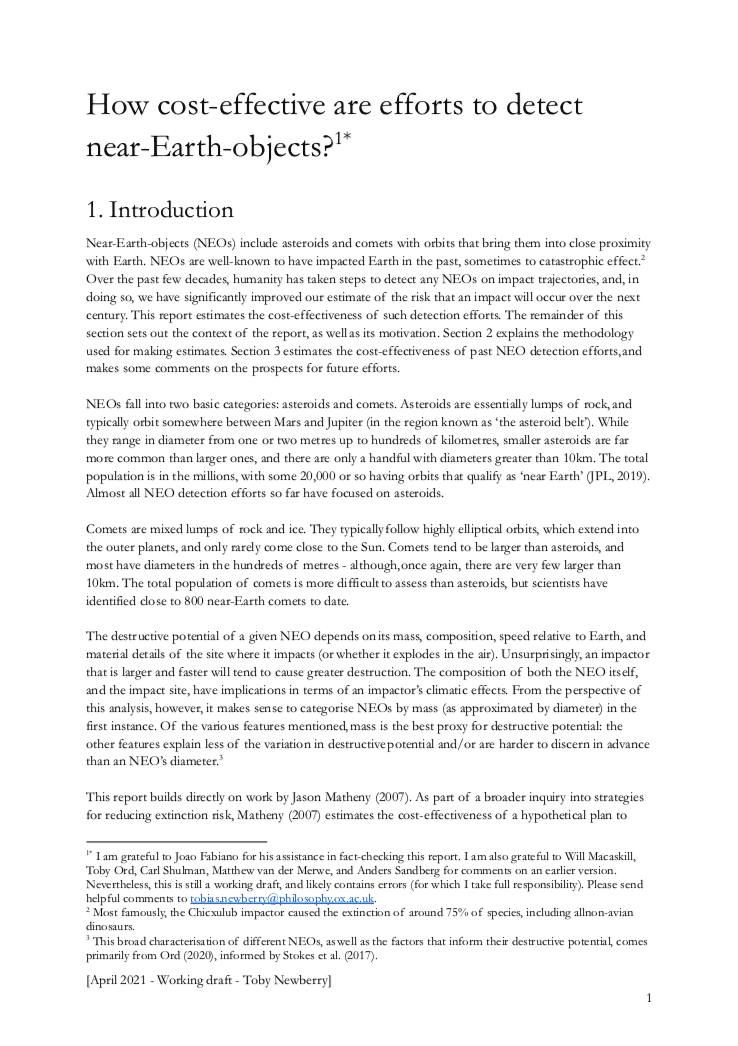How cost-effective are efforts to detect near-Earth-objects?
Toby Newberry (Future of Humanity Institute, University of Oxford)
GPI Technical Report No. T1-2021
Near-Earth-objects (NEOs) include asteroids and comets with orbits that bring them into close proximity with Earth. NEOs are well-known to have impacted Earth in the past, sometimes to catastrophic effect.2 Over the past few decades, humanity has taken steps to detect any NEOs on impact trajectories, and, in doing so, we have significantly improved our estimate of the risk that an impact will occur over the next century. This report estimates the cost-effectiveness of such detection efforts. The remainder of this section sets out the context of the report...
Other working papers
Tough enough? Robust satisficing as a decision norm for long-term policy analysis – Andreas Mogensen and David Thorstad (Global Priorities Institute, Oxford University)
This paper aims to open a dialogue between philosophers working in decision theory and operations researchers and engineers whose research addresses the topic of decision making under deep uncertainty. Specifically, we assess the recommendation to follow a norm of robust satisficing when making decisions under deep uncertainty in the context of decision analyses that rely on the tools of Robust Decision Making developed by Robert Lempert and colleagues at RAND …
Doomsday rings twice – Andreas Mogensen (Global Priorities Institute, Oxford University)
This paper considers the argument according to which, because we should regard it as a priori very unlikely that we are among the most important people who will ever exist, we should increase our confidence that the human species will not persist beyond the current historical era, which seems to represent…
Estimating long-term treatment effects without long-term outcome data – David Rhys Bernard (Rethink Priorities), Jojo Lee and Victor Yaneng Wang (Global Priorities Institute, University of Oxford)
The surrogate index method allows policymakers to estimate long-run treatment effects before long-run outcomes are observable. We meta-analyse this approach over nine long-run RCTs in development economics, comparing surrogate estimates to estimates from actual long-run RCT outcomes. We introduce the M-lasso algorithm for constructing the surrogate approach’s first-stage predictive model and compare its performance with other surrogate estimation methods. …

